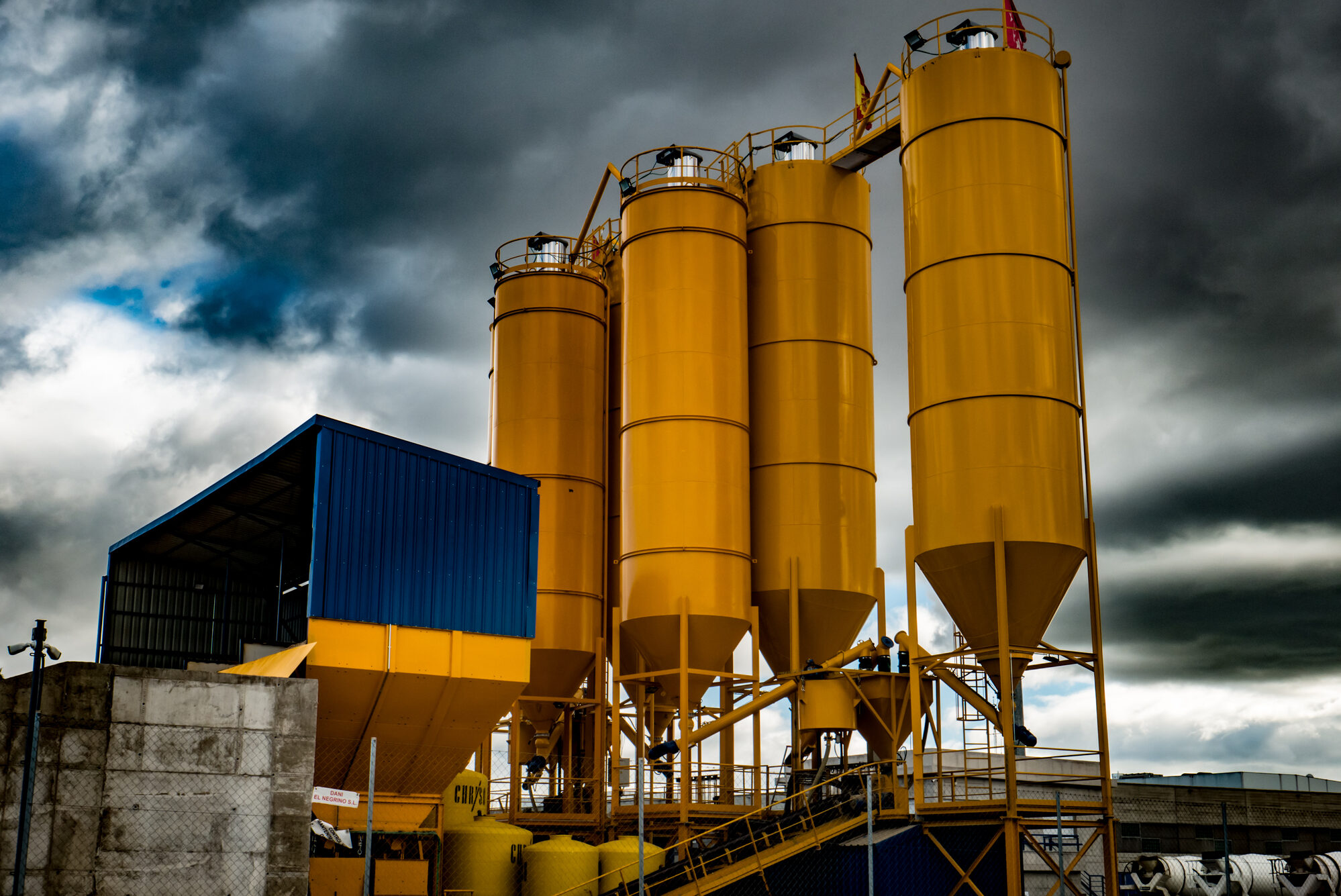Cement terminals are the backbone of construction projects, ensuring that bulk cement and related materials are stored, handled, and delivered efficiently. These distribution facilities play a critical role in keeping the supply chain running smoothly, supporting infrastructure development, and meeting the demands of projects both large and small. Without them, the construction industry would grind to a halt faster than wet cement hardens.
What Are the Basic Functionalities of Cement Terminals?
Cement terminals handle the storage, loading, and distribution of bulk cement to construction sites, municipal projects, and other key destinations. Their operations rely on several essential components working seamlessly together:
Storage Silos and Domes
Cement terminals are designed to store a variety of products, including traditional cement, slag cement, and other cementitious materials. These materials are housed in specialized silos or domes, which protect them from moisture and environmental factors, ensuring they maintain their quality and are ready for use at a moment’s notice.
Transportation Infrastructure
Strategic placement is key. Terminals are typically located near ports, rail lines, and highways to streamline the receiving and shipping process. Trucks, railcars, and even ships are essential for moving materials efficiently in and out of the terminal.
Loading and Unloading Equipment
Specialized machinery handles the transfer of cement from railcars or ships into silos and eventually onto trucks for delivery. This equipment is built for heavy-duty operations, ensuring quick and reliable handling of bulk materials.
Keeping Cement Moving: How Terminals Operate
When it comes to the distribution of cement, there’s no room for delays. Cement terminals prioritize efficiency to meet the demands of construction projects.
Here’s how their operations work:
- Receiving and Storing Cement: Bulk shipments arrive by rail, truck, or ship. The material is transferred into silos or domes designed to hold thousands of tons of cement at once.
- Distributing Cement to Customers: Once an order is placed, the terminal loads cement into trucks or railcars for delivery to its final destination. Terminals manage supply and demand carefully to avoid delays.
- Strategic Locations: By positioning terminals near key ports or highways, transportation costs are reduced, and delivery times are improved.
- Focus on Sustainability: Many terminals are adopting greener practices, such as energy-efficient equipment and advanced resource management systems, to reduce their environmental footprint.
The Challenges Cement Terminals Face
Operating a cement terminal isn’t without its challenges. These facilities often contend with:
- Storage Buildup: Over time, materials can build up inside silos, reducing their storage capacity and causing operational delays. Addressing these problems quickly is essential to avoid extended downtime.
- Equipment Wear and Tear: All that loading and unloading can take a toll on the machinery, leading to costly repairs if not maintained properly.
- Capacity Expansion: Growing demand for cement forces terminals to expand their storage and distribution capabilities, which can be time-intensive and expensive.
- Transportation Delays: Delays in rail or truck schedules can throw a wrench in the works, causing headaches for everyone involved.
Innovative Solutions for Efficient Terminal Operations
Cement terminals rely on innovative strategies to overcome these challenges and maintain efficient operations. Regular silo cleaning prevents buildup that can reduce storage capacity and disrupt workflows, minimizing downtime for terminals. Upgrades to equipment, such as faster loading systems and advanced monitoring tools, allow terminals to manage larger volumes with less effort. These solutions can keep operations running smoothly and position terminals to meet the growing demand of the construction industry.
Professional Cement Terminal Maintenance Services
When it comes to keeping your terminal in top shape, trust the experts at Silo Pros. With over three decades of experience, we understand the unique challenges of cement storage and distribution.
- Silo Cleaning Services: Our team specializes in cleaning storage silos and domes, restoring lost capacity and preventing downtime.
- Safety You Can Trust: Our OSHA-certified team ensures the highest safety standards are met on every job.
- Custom Solutions: Whether you’re working with steel silos, storage domes, or bulk handling equipment, we provide solutions customized to your needs.
- Nationwide Reach: From Florida to Texas and beyond, Silo Pros is here to support cement terminals across the country.
Your Terminal’s Performance Is Our Priority
Cement terminals are essential to the construction industry, and efficient operations are non-negotiable. Whether it’s cleaning silos, upgrading equipment, or addressing logistical challenges, Silo Pros provides solutions to keep your terminal running at its best. When it comes to reliable cement terminal maintenance, trust the experts to get the job done right.
Your Terminal’s Performance Is Our Priority
Cement terminals are essential to the construction industry, and efficient operations are non-negotiable. Whether it’s cleaning silos, upgrading equipment, or addressing logistical challenges, Silo Pros provides solutions to keep your terminal running at its best. When it comes to reliable cement terminal maintenance, trust the experts to get the job done right.

